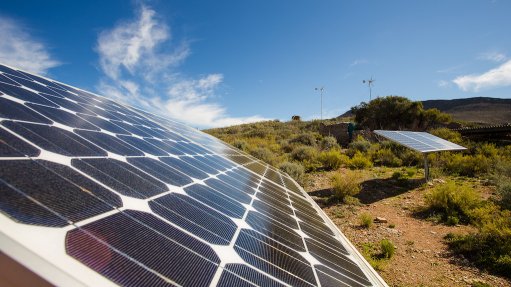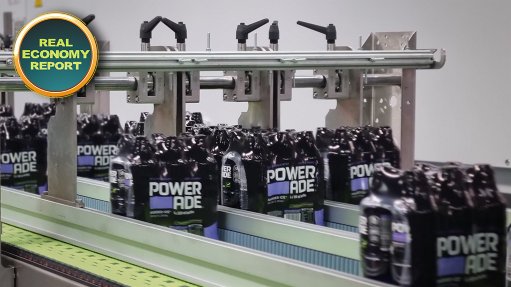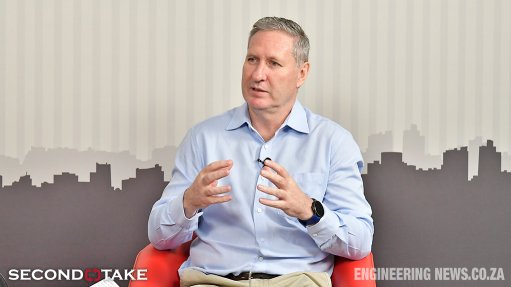East Africa’s sustainability journey – the road ahead is clear
This article has been supplied.
By Carol Koech, Strategy Director, Sustainability & Thought Leadership – Schneider Electric International Operations.
In a time when countries are proactively moving toward more sustainable practices, particularly in light of the recent COP28 climate summit’s plan for transitioning from fossil fuels, East Africa is undoubtedly a shining beacon.
Today, the region continues to implement a comprehensive, multi-layered approach to addressing climate-related challenges. From renewable energy initiatives to greener agriculture, transportation, and tourism, East Africa is navigating a complex landscape with both urgency and pragmatism.
Kenya is a prime example; the country relies heavily on renewable energy, with geothermal and hydropower contributing significantly to its energy base load. As of 2021, the green component of Kenya's energy mix stands at an impressive 81%, tangibly demonstrating the country’s commitment to clean energy.
Importantly, Kenyan CEOs, captains of industry and government entities are driving the agenda for climate sensitive practices that allow them to meet their decarbonisation goals. This commitment is undoubtedly creating important momentum in the industry and reemphasising that both public and private sectors have roles to play in addressing environmental challenges.
In Kenya, sustainability is driven by various industries, some of which include:
• Telecommunications Industry – Safaricom's Initiatives: Safaricom, a leading telco in Kenya, is making substantial strides in sustainability. Initiatives include the collection and recycling of 1626 tons of e-waste, with 310 (cumulative total) sites powered by clean and renewable energy, marking a 19% increase in sites operated by the company compared to the previous year.
Furthermore, Safaricom continues to demonstrate its commitment to diversity with a 50% women workforce and 35% representation in top leadership. The deliberate measures to assess carbon footprint (66,562 tCO2e) and water consumption (58,340 cubic meters) underscore the company’s dedication to holistic sustainability.
• Food and Beverage (F&B) industry – Bio Foods' Initiatives: In the F&B sector, Bio Foods Bio Foods is setting an exemplary standard for sustainability. The company has successfully recycled 96.8% of the 26,280 kgs of waste produced. Bio Foods has implemented a closed-loop water system for their UHT autoclave machine, allowing them to recycle up to 60,000 litres of water daily. Despite increased production, the company has reduced its carbon footprint by an impressive 22%.
These are just but a few of the many leading companies making moves towards sustainable practices. Organisations such as Schneider Electric have also been instrumental in enabling countries to tackle their sustainability challenges head on.
By digitising processes and implementing energy measurement tools, Schneider Electric is assisting companies to valuable insights into their energy consumption, paving the way for more efficient and sustainable operations. By implementing EcoStruxure solutions such as the industries have led optimised and energy efficient operations enabling them meet industry benchmarked ISO standards for energy management, environmental management, GHG (greenhouse gas) emissions, and life cycle assessment.
Further, the UN’s Sustainable Development Goal (SDG) 7: access to Affordable and Clean Energy is one the pillars in the globe’s sustainability journey, that various East African industries are working on to transition to prosumer status, by generating and consuming their own energy.
The proof is in the proverbial pudding, and East Africa is certainly putting proactive steps in place to establish a region that is driven by sustainable practices, renewable energy and importantly a clear, climate-sensitive vision for the future.
Comments
Press Office
Announcements
What's On
Subscribe to improve your user experience...
Option 1 (equivalent of R125 a month):
Receive a weekly copy of Creamer Media's Engineering News & Mining Weekly magazine
(print copy for those in South Africa and e-magazine for those outside of South Africa)
Receive daily email newsletters
Access to full search results
Access archive of magazine back copies
Access to Projects in Progress
Access to ONE Research Report of your choice in PDF format
Option 2 (equivalent of R375 a month):
All benefits from Option 1
PLUS
Access to Creamer Media's Research Channel Africa for ALL Research Reports, in PDF format, on various industrial and mining sectors
including Electricity; Water; Energy Transition; Hydrogen; Roads, Rail and Ports; Coal; Gold; Platinum; Battery Metals; etc.
Already a subscriber?
Forgotten your password?
Receive weekly copy of Creamer Media's Engineering News & Mining Weekly magazine (print copy for those in South Africa and e-magazine for those outside of South Africa)
➕
Recieve daily email newsletters
➕
Access to full search results
➕
Access archive of magazine back copies
➕
Access to Projects in Progress
➕
Access to ONE Research Report of your choice in PDF format
RESEARCH CHANNEL AFRICA
R4500 (equivalent of R375 a month)
SUBSCRIBEAll benefits from Option 1
➕
Access to Creamer Media's Research Channel Africa for ALL Research Reports on various industrial and mining sectors, in PDF format, including on:
Electricity
➕
Water
➕
Energy Transition
➕
Hydrogen
➕
Roads, Rail and Ports
➕
Coal
➕
Gold
➕
Platinum
➕
Battery Metals
➕
etc.
Receive all benefits from Option 1 or Option 2 delivered to numerous people at your company
➕
Multiple User names and Passwords for simultaneous log-ins
➕
Intranet integration access to all in your organisation




















